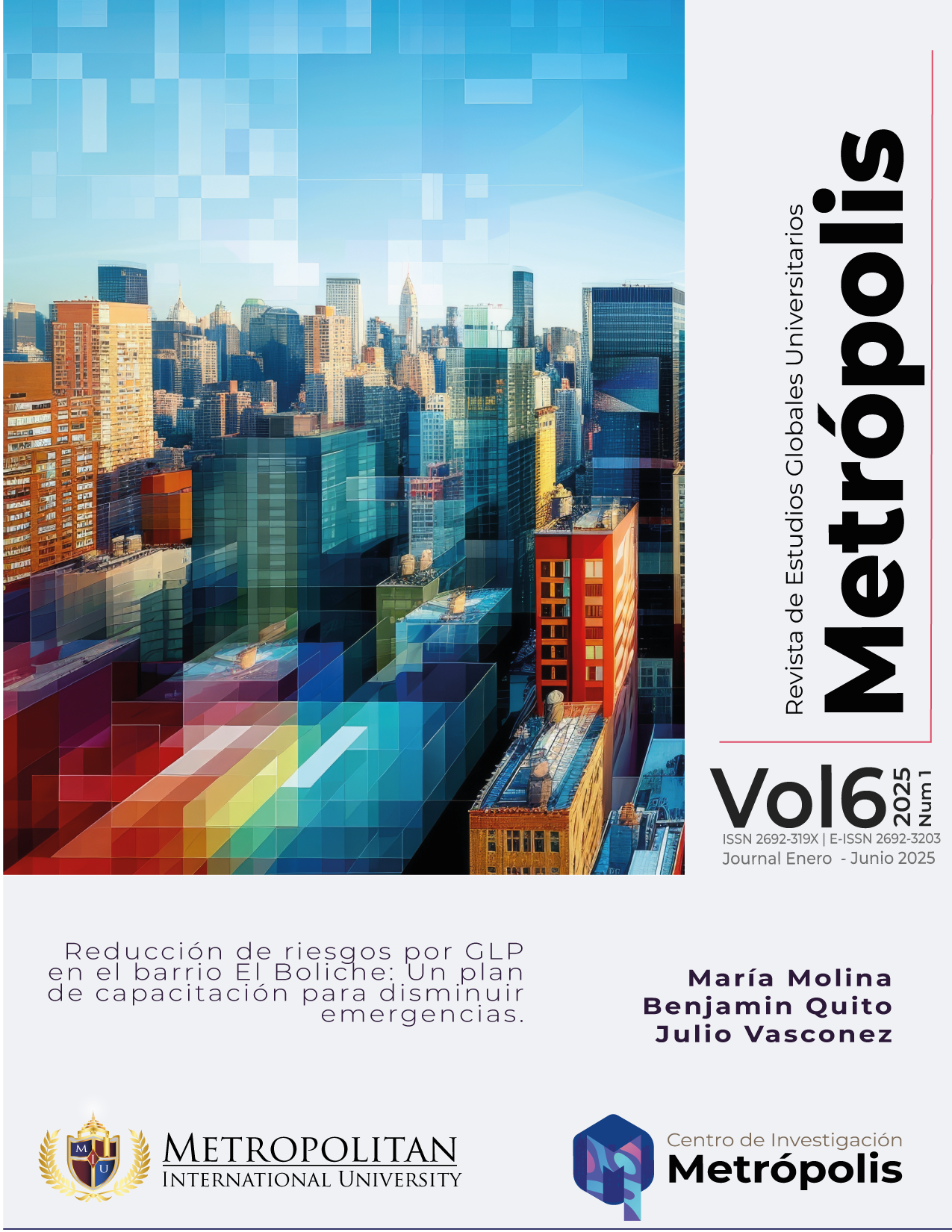Reduction of LPG risks in El Boliche neighborhood
A training plan to decrease emergencies.
Keywords:
Maintenance plans, Failures liquefied petroleum gas, Planned Maintenance, Failure HistoryAbstract
The present project was prepared based on the information of the emergencies given in the Boliche neighborhood of Latacunga canton, province of Cotopaxi, of the improper use and management of the domestic liquefied petroleum gas (LPG) cylinder, the dangers it entails in daily activities, especially in poor handling of the gas cylinder. The use of domestic equipment that runs on liquefied petroleum gas (LPG) as fuel (stoves, water heaters, dryers, etc.), the current price of petroleum gas, and above all the comfort that it represents for the user to have in the home with fuel through a centralized installation, applicable to both single-family and multi-family homes. Because liquefied petroleum gas is a substance found in containers under pressure, which upon contact with the heat of the atmosphere becomes gaseous and highly flammable, it is essential that domestic installations that transport liquefied petroleum gas for use, are carried out in compliance with strict standards and control parameters. If minor risks such as the freezing of pipes or accessories that impact the inefficiency of the equipment, to major risks such as explosions and/or fires, were avoided. The tests that must be carried out once the home installation is completed will be presented, in order to verify its safety and functionality, to complement this study with an analysis. It was concluded that it is possible to define optimal maintenance plans focused on eliminating the causes of failures, generating an increase in the availability of equipment, reducing unexpected failures.

Downloads
Published
How to Cite
Issue
Section
License

This work is licensed under a Creative Commons Attribution-NonCommercial-ShareAlike 4.0 International License.



